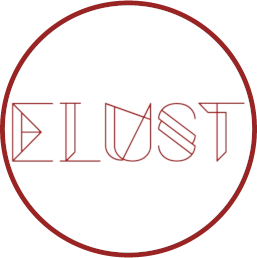Two weekends months ago at this time, I was signed onto Zoom with around 50 other people for the Sexual Health Alliance’s Wyld conference, a weekend of presentations by alumni geared toward professionals in the sexuality field. The topics of those discussions covered a wide range: female pleasure, affirmative consensual, mindfulness, navigating sexual conflict, bondage, identity, serving Black women clients, and more. The participants consisted of SHA interns like myself and professionals who wanted to expand their knowledge, some of whom were working toward official certification as sex therapists, coaches, or educators.
This conference left a big mark on me, the least of which is the fact that spending 16 hours on Zoom over a two-day period is draining. However, most of that impact was positive and something I’ve wanted to blog about, although the fact that it’s taken me this long might suggest otherwise.
To start, attending a conference with a focus on sexuality is huge. So few places exist where you can freely discuss sex, and to be surrounded by people who recognize its importance and the disservice done to people who live in a society that does all in its power to sweep sex under the rug is incredibly liberating. Even among friends and family, discussions of sex can still feel taboo. SHA has given me opportunities to discuss something close to my heart, which helped me realize how much I had been needing that.
It was also validating to be in that virtual room. I’ve spent so much time feeling like an imposter, ultimately returning to school to combat that feeling. But during this conference, I felt like I belonged. More than that, I could tell that I was more familiar with so many of the conference topics than some participants. As one speaker discussed sexual pleasure, I recognized several areas where I would have done something different based on my knowledge. Talk about a boost to my confidence! Judging from others’ responses, I know that many found the information about preferences or experiences to be validating in a different way. It just goes to show how important sex education is!
Of course, you won’t be surprised to learn that I also found the conference intellectually stimulating. I wasn’t enthralled by every panel or speaker, but I found myself thinking–and talking–about many of the topics for days or even weeks after the conference. I used the ideas as basis for further research as well as blog posts for clients and social media content for my internship. I was especially taken by the idea of the nervous system’s role in communication, something that was introduced in a panel about the Gottman method for couples’ therapy. In fact, I am typing this with a brand-new fitness tracker on my wrist, having taking the plunge after using heartrate is to measure someone’s emotional dyregulation was discussed in another, more recent SHA confence. I know that’s something I personally struggle with, and I can imagine that others on the Zoom call similarly found some of the information useful on a personal level.
Speaking of others, there was a sense of community and connection for which I don’t have a singular “-ating” adjective to use. I’ve finally given LinkedIn a serious look and have been growing my network. Some of my new connections are people who have presented at or attended Sexual Health Alliance conferences, so they’re a good opportunity to find others in this field and potential opportunities, projects, or collaborations to further our own work.
I could really go on. For example, SHA provides lunch and learn activities, usually podcasts. It’s amazing to think that some of the podcasts I listen to for leisure learning are considered important enough to be involved in these events (although, I don’t get CEs when listening to podcasts, ha!). In fact, I’d already listened to one that was provided! Again, this goes back to feeling validating about the work I’ve done and knowledge I’ve gained in this field. I could also talk about how a mindfulness technique had me in tears almost instantaneously, and what that meant to me (perhaps I will in another post if anyone is interested!)
I’m sure there are a few things I’m missing simply because it took me this long to sit down and write this post, which is on me. Still, I think I’ve hit on the highest points.
I’ve already attended my second conference with SHA and signed up for the next. Aside from racking up knowledge, I’m earning CEs that I will eventually apply for AASECT certification. Even if I weren’t, they knowledge and community would still be beneficial. So if you’re curious about a conference, whether hosted by Sexual Health Alliance or another organization, I cannot recommend it enough, even if you feel like you don’t belong–perhaps becase you feel this way. SHA specifically offers two scholarships for BIPOC participants to every conference, which can help if the pricetag is high for you (and BIPOC scholarships for its certification programs, which include three conferences), so attending might be more accessible than you think.
Maybe I’ll see you at a conference in the future!



